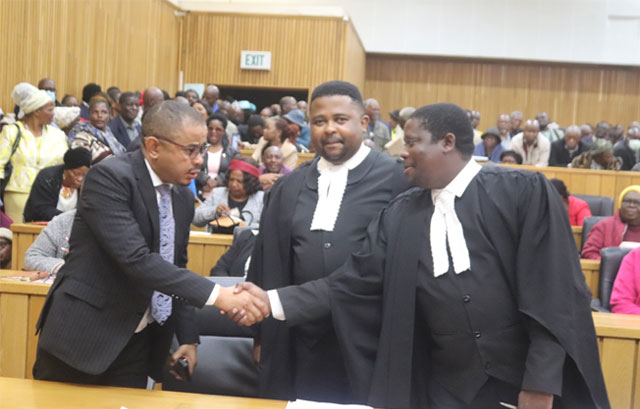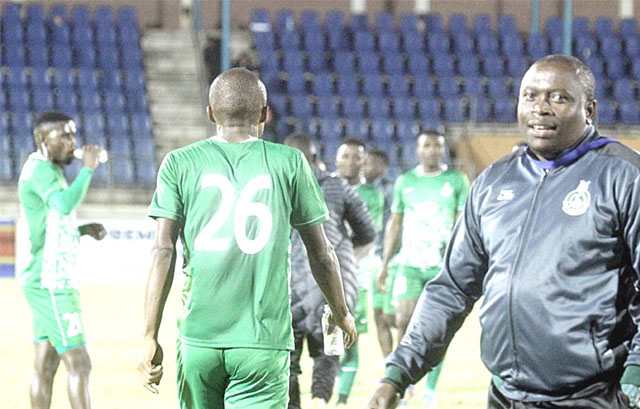By Sibusiso Dlamini | 2023-09-18
One of the greatest joys that come with doing my job is getting to experience different parts of the country and the people.
This being election time, I have had the privilege of travelling to some of the most remote places and having interesting conversations with different people.
I’ve been honestly pleasantly surprised by the encounters I’ve had with the chiefs of these areas I’ve gone to, because, from where I sit, chiefs, have for the longest time, been part of the problem.
As Prince Mlayeto once said, chiefs have been letting the young people of this country down with their lack of foresight and greed.
The cookie crumbled the moment chiefs decided to abandon their duties of being decision-makers, dispute resolvers, land allocators and cultural compasses as tasked by His Majesty the King, to become unscrupulous landlords.
communities
Instead of leading and driving development within communities, chiefs turned into real estate agents, and because our system lacks accountability, it became normality.
I’ve always said the downfall of our system, besides lack of understanding, is lack of accountability, becouse it has led to distrust and ultimately disaffection.
This is disastrous because the success of any system of governance lies entirely on public trust which in turn inspires active citizenship.
Anyways, I will single out one of those memorable conversations.
I was at Nkhaba the other week and spoke to the chief, Prince Mnisi, who left me extremely amazed and thoroughly impressed with his lofty aspirations and clear cut strategy to achieve them.
He mentioned that there were a number of initiatives in the pipeline, and said he was now awaiting the arrival of a Member of Parliament so they can work together with him and the developmental committees.
This to me was mind-blowing because the man sounded very knowledgeable with everything he was talking about - from the potential of income in tourism and agriculture to youth empowerment.
He assured me that involving the youth in decision-making prosses was a priority.
“Of course, this can’t be a rushed process,” he said.
“We need to initiate it with thoughtfulness and intention, but I can guarantee you that I value the youth and therefore, it is a matter of importance for me to get their perspective on all issues in the community,” explained the Chief.
I asked him about his views on how traditional authorities are being overlooked in the role they can play as agents of change in the g\fight against climate change.
His answer couldn’t have been more interesting, because he said: “Given its complexity and uniqueness, external intervention alone will unfortunately not result in the required mindset change, within our communities, so we as traditional leaders should also be agents of changes to combat the negative effects of climate change.”
The man spoke very strongly about this, underscoring the fact that the State and non-governmental organisations cannot foster climate change adaptation within communities without the support of traditional leaders.
passionately
I was awestruck and you cannot even begin to imagine how touched I was listening to him speak passionately about the youth and the guarantee that they would be empowered and equipped with resources to develop.
This is important because effective utilisation of local mechanisms is fundamental for the bottom up approach design of our system, and chiefs should be playing a key role in helping the government successfully manage to decentralise State power.
They should also be essential in conflict resolution at Tinkhundla level (remember the 2021 petitions?), to manage and prevent conflicts at the local level; but instead, they’ve become too preoccupied with infighting or managing their real estate side hustle.
integral
How then can young people who form two thirds of the entire country play an integral part in developing the nation if they do not only just distrust their government, but also traditional leaders?
How can service delivery be improved and decentralised if chiefs aren’t trustworthy or in the know in terms of global practices or how the world is changing?
Difficult times require a different way of doing things, and this is the time for chiefs to find a way to include the youth in the decision-making in communities, which means they have to come to terms with the fact that young people aren’t a homogenous lot, but are different.
It is very important to understand that the recent fractures that have come to bear are manifestations of an underlying problem with our system, so, chiefs should reserve particular concern for most young people who perceive – rightly or wrongly – that the system has little ability or inclination to improve their welfare.
It is high time traditional leaders smell coffee and get to business (no pun intended) because the more young people feel disconnected from and unsupported, the more likely we are to see a repeat of those tragic events of the 2021 unrest.
share story
Post Your Comments Below
SOCCER - CAPITAL city side Mbabane Swallows and ambitious Nsingizini Hotspurs will headline the 8...

OVER 300 Emaswati that invested with Ecsponent Eswatini (Pty) Ltd yesterday heeded to Judge Khont...


SOUTH African multi-award-winning gospel ensemble, Worship House is building partnerships in Eswa...
All material © Swazi Observer. Material may not be published or reproduced in any form without prior written permission.
Design by Real Image Internet